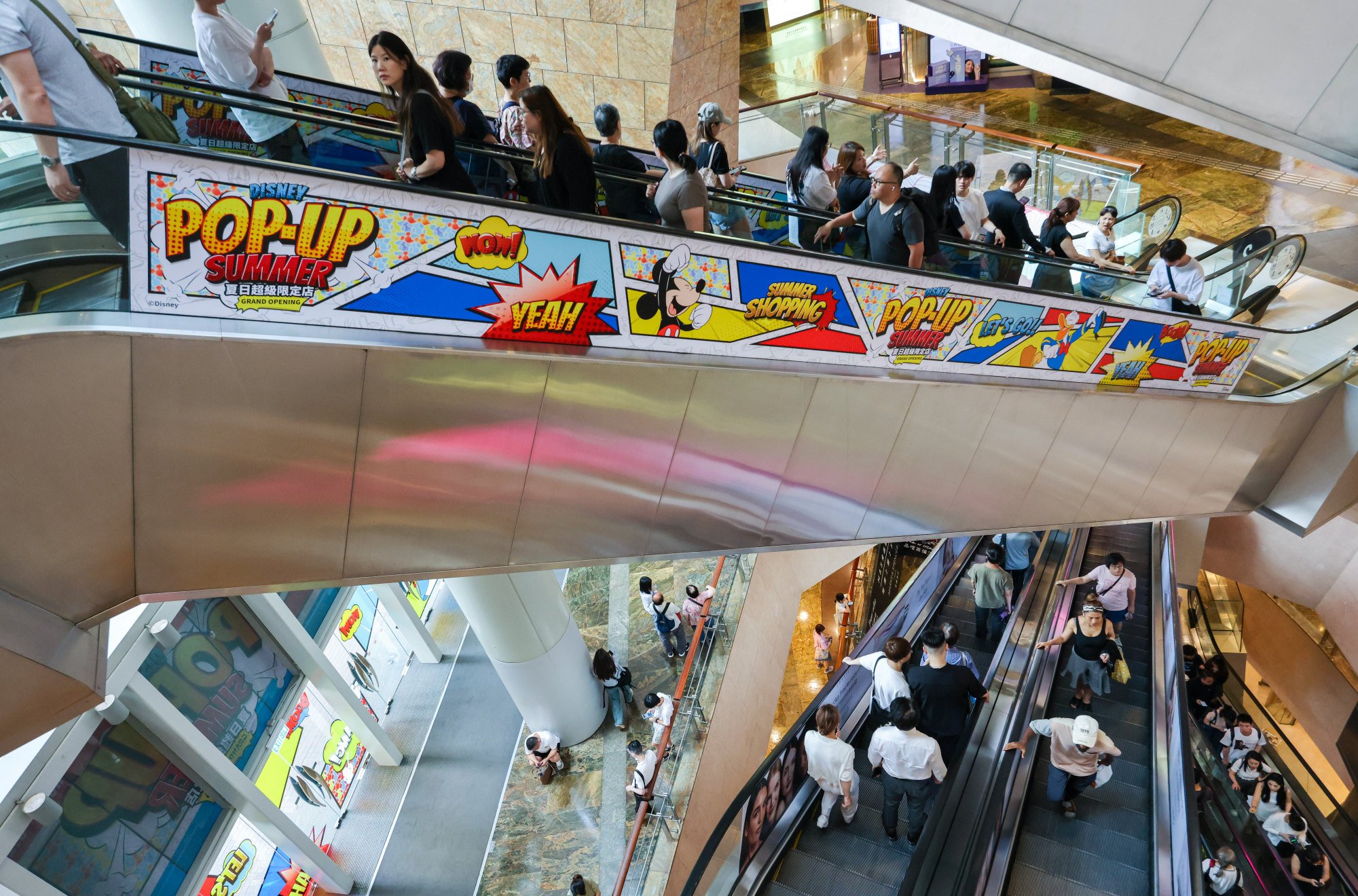
Hong Kong retailers need to change their ways to stop sales slide, industry experts say
- Retail sales in Hong Kong have slumped by double-digit figures for two months in a row as consumers change the way they shop
Sliding sales figures are a wake-up call for Hong Kong retailers to reinvent themselves to win back shoppers amid changes in consumption patterns, especially residents who choose to spend across the border, industry chiefs have said.
Alarm bells rang on Tuesday when official statistics showed retail sales had slumped by double-digit figures for two months in a row, falling 11.5 per cent year on year in May after a 14.7 per cent decline in April.
Industry leaders and a lawmaker on Wednesday urged retailers to change the way they operated, including by strengthening online sales channels and revamping business models, as visitors preferred experiences over splurging on consumer goods while Hongkongers went to mainland China for cheaper and better service.
Some called for improvements in service quality as the first step.
“Retail businesses need some huge reforms, as they are no longer competing with the shop next to them, but various sectors within the Greater Bay Area,” said Wingco Lo Kam-wing, president of the Chinese Manufacturers’ Association of Hong Kong.
“Now is a period of adjustment, and Hong Kong’s retail industry needs to think of new breakthroughs.”
Lo said a strong Hong Kong dollar meant spending in the city was more costly. He added that a growing shift to online shopping was among the changes in consumption patterns, which also played a role.
For example, US supermarket chain Sam’s Club in Shenzhen launched direct delivery services for online shoppers in Hong Kong in June.
In the first five months of 2024, the city welcomed 18 million visitors, 76.6 per cent of whom were from the mainland, but retail sales were down 6.1 per cent year on year during the period.
To attract more visitors and boost consumption, Lo suggested improving the tourist experience by including elements from other local sectors.
Visitors, for example, could tour locations of famous films and television dramas or be given first-hand experience of the manufacturing process of local products, he said.
He also called on businesses to offer more innovative and distinctive products to attract consumers, noting younger generations now focused more on cost-effectiveness as well as the stories behind the brands.

Oliver Tong, head of retail at property consultancy JLL Hong Kong, said retailers should improve their service as a fundamental part of their reinvention.
“Experiences matter to consumers at present,” he said. “I’ve heard so many people saying that service quality is better across the border, and there is a courtesy campaign going on in Hong Kong, too.”
Lawmaker Michael Tien Puk-sun said retail industry inertia was a factor behind the downturn, which was reflected in their products, services and infrastructure.
Tien said the government would need to invest more on large-scale tourism infrastructure rather than spending money on fireworks, which would not attract the high-spenders the industry needed.
Lam Chi-chung, the general officer of the Hong Kong Department Stores and Commercial Staff General Union, urged businesses to expand online and make good use of social media platforms to reach out to consumers to boost sales and revenues.
He suggested businesses seek opportunities during the coming Paris Olympics, which start later this month, including broadcasting events to increase foot traffic and stimulate consumption.
Professor Terence Chong Tai-leung, executive director of the Chinese University of Hong Kong’s Lau Chor Tak Institute of Global Economics and Finance, said the structural change to online shopping had resulted in some physical stores being phased out, calling it inevitable given the development of technology.
“Physical shops may not be necessary in the era of technology. This is the same for every economy,” he said, noting that retail sales had also dropped elsewhere.
Additional reporting by Harvey Kong


